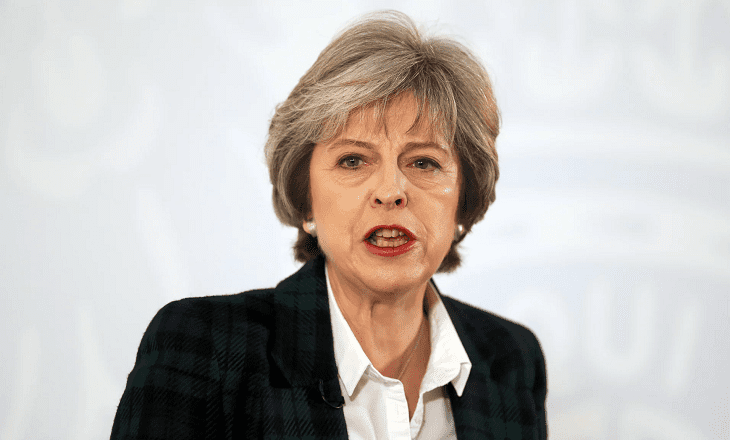No one ever said that negotiating a Brexit deal would be easy, but Theresa May accepted the challenge, when she became the U.K.’s second female Prime Minister in 2016. Unfortunately, after three years of trying, she could not seal the deal. Mrs. May announced her resignation on Friday, effective the 7thof June, but she will stay on as a “lame-duck” leader until her replacement is determined, perhaps, by the end of July.
Assuming the role as the “Step-Mother” for the Brexit “baby”, which may have been ill conceived to begin with, had been fraught with difficulty every step of the way, but Mrs. May was honored to have at least tried. Standing in front of 10 Downing Street, the beleaguered Prime Minister publicly stated that she “will shortly leave the job that has been the honor of my life to hold” and that it was in the “best interests of the country for a new prime minister” to take the Brexit mantle and attempt to complete the task.
She added that: “I feel as certain today as I did three years ago that in a democracy, if you give people a choice you have a duty to implement what they decide. I have done my best to do that. I have done everything I can to convince M.P.s to back that deal. Sadly, I have not been able to do so.” As her voice cracked, May could not conceal her emotions totally, as she acknowledged her honor to have served as the “second female prime minister, but certainly not the last.”
Although Mrs. May received kind comments of support from global leaders, as well as from some of her most ardent local critics, contenders for her job were already jockeying for position, and some say they have been doing so for weeks. The names being bandied about are Michael Gove, Dominic Raab, Jeremy Hunt, Sajid Javid, Andrea Leadsom, and Boris Johnson, but these leaders within the Tory party are apt to discover the same dilemmas that faced May from the start.
There have been three years of parliamentary deadlock, infighting, and division, with little to show for it other than a deal that the EU approved, but which her colleagues voted down three times. As has been reported:
When May succeeded David Cameron as prime minister in July 2016, she inherited a parliamentary majority and a 20-point lead in the polls over the opposition Labour Party. She was dubbed the “New Iron Lady,” in a favorable nod to the country’s only other female prime minister, Margaret Thatcher. But she also inherited a policy challenge of historic proportions: to deliver on a referendum result she didn’t support, and take Britain out of the European Union.
Whatever support she may have enjoyed at the outset soon dissipated. Over time it became clear that there was not an obvious majority for either of the three possible options, i.e., exiting with a deal, exiting with “no deal”, or revoking the entire notion of exiting by holding another referendum. Whoever assumes the P.M. position will be faced with the same reality, but for now, there is nothing but more uncertainty.
European officials are now concerned about what is next on the U.K. agenda. They are adamant that the current deal is as far as they are willing to go, accepting that none of the leaders in the EU ever wanted Britain to leave in the first place. According to Mina Andreeva, a European Commission spokeswoman:
We are ready, we have been ready, we continue to be ready whatever the scenario is.” She also reiterated that the commission’s preference would be for “an orderly withdrawal on the basis of the withdrawal agreement that has been negotiated with the U.K.
While some Europeans are willing to give the British more time to work their way beyond the present impasse, the truth of the situation is that a schism exists within the Tory party – half for a “deal” Brexit, and the other half for a “no deal” Brexit. MP contenders are already openly touting their position, which will make for interesting times ahead.
Nikolaus Meyer-Landrut, the German ambassador to France, noted that even after May’s resignation, nothing much has changed. The same dilemmas remain:
Brexit yes or no. But more important is, Brexit how? Every how has a price. And the British begin to understand how high is the price.
The clock, however, is ticking. October 31, Halloween, is the next deadline. The ongoing frustration of EU officials is evident in the remarks of European Commission President Jean-Claude Juncker. He is irritated that UK MPs act as if it is “more important to replace the prime minister than to find an agreement among themselves. I am getting fed up because we are [just] waiting for the next extension.”
